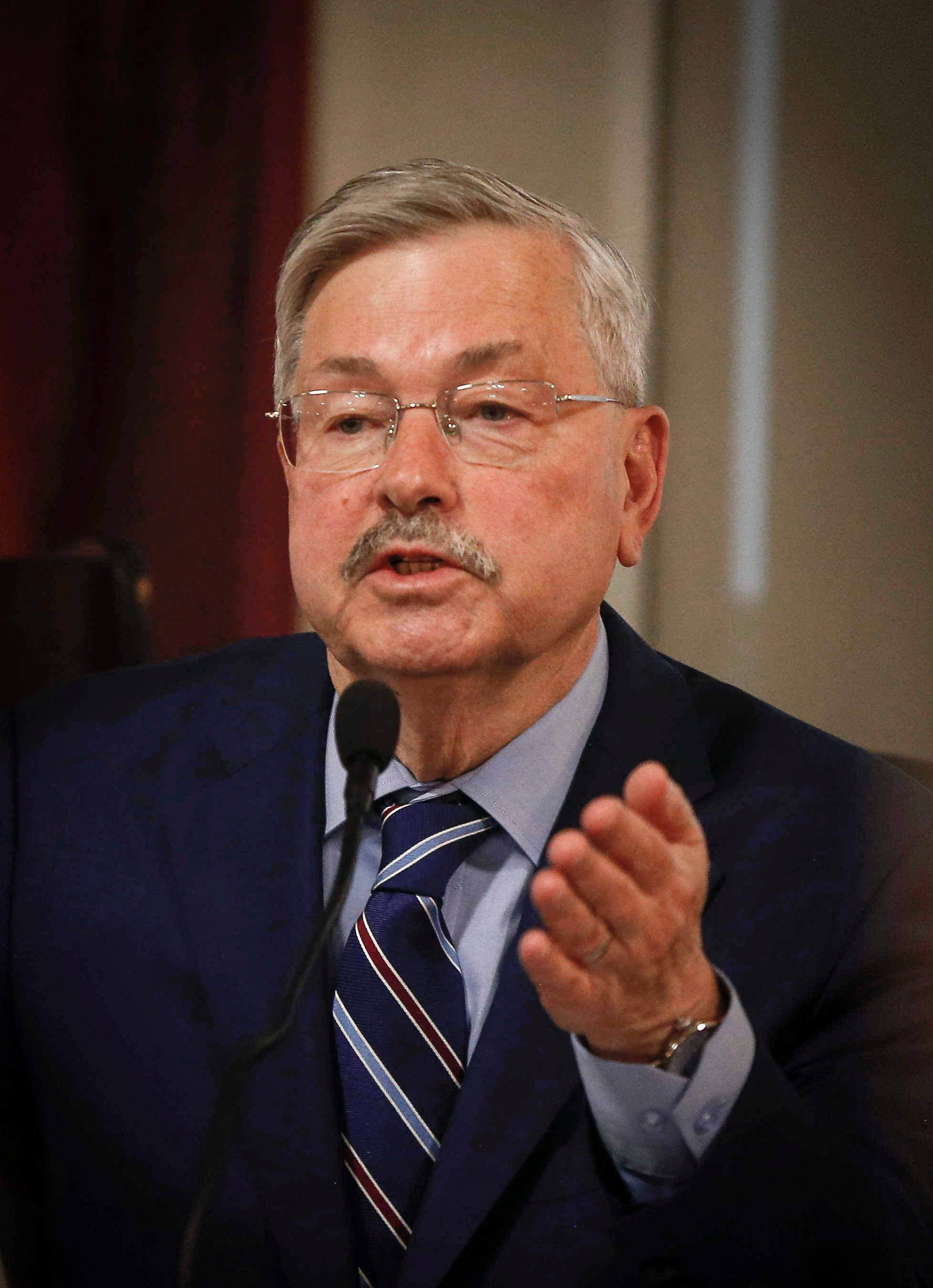Court overturns gay bias verdict against ex-Iowa governor
The Iowa Supreme Court has ruled that former Iowa Gov. Terry Branstad did not illegally discriminate or retaliate against a gay state official — overturning a landmark $1.5 million jury verdict

Overturning a landmark $1.5 million jury verdict, the Iowa Supreme Court ruled Wednesday that former Gov. Terry Branstad did not illegally discriminate or retaliate against a gay state official.
The court found a lack of evidence to show that Branstad discriminated against then-Iowa Workers' Compensation Commissioner Chris Godfrey because of his sexual orientation.
Although Godfrey was widely known as openly gay, there is no proof Branstad was aware of Godfrey’s sexual orientation before asking him to resign and slashing his salary when Godfrey refused, Justice Christopher McDonald wrote.
The ruling overturned a 2019 verdict in which Polk County jurors found that Branstad and his former legal counsel violated the Iowa Civil Rights Act. Jurors had awarded Godfrey, a Democrat who is now an official with the U.S. Department of Labor, $1.5 million in damages for emotional distress.
Branstad, a Republican who later served as U.S. ambassador to China has argued that he sought Godfrey’s resignation because powerful business interests disagreed with rulings by Godfrey and his staff awarding benefits to injured workers. He has claimed that he acted legally in 2011 by reducing Godfrey’s salary by $40,000, to the lowest amount allowed by the Legislature for the position.
Godfrey couldn’t be fired under a provision in Iowa law intending his six-year term to be insulated from politics. He eventually left state government in 2014.
The ruling ordered a lower court to dismiss all of Godfrey's claims, ending a case that lasted a decade, made three trips to the Iowa Supreme Court and cost taxpayers millions of dollars in legal fees.
Six of the seven justices agreed with the outcome, including the two justices that Branstad appointed to the court.
Bookmark popover
Removed from bookmarks